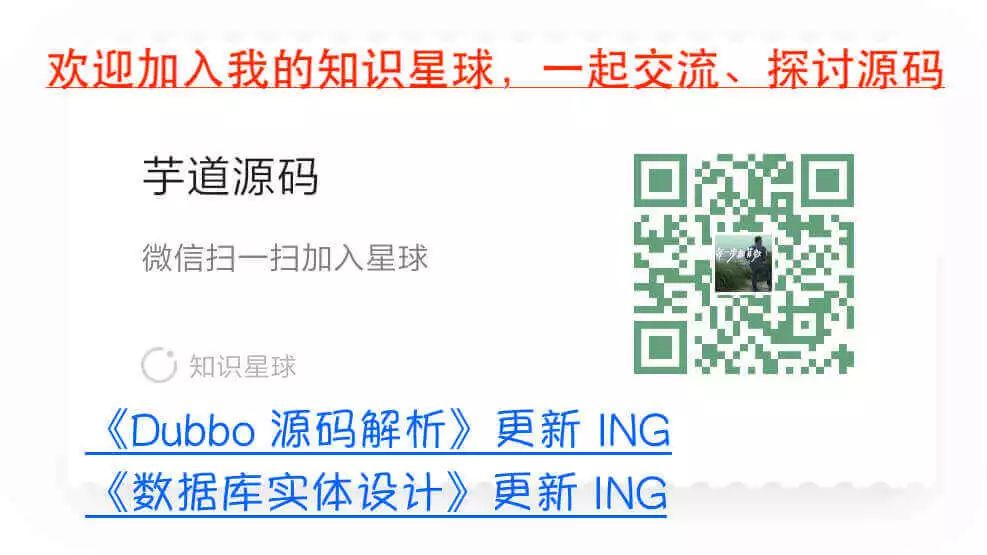点击上方“芋道源码”,选择“置顶公众号”
技术文章第一时间送达!
源码精品专栏
精尽 Dubbo 原理与源码 69 篇
精尽 Netty 原理与源码 61 篇
Hmily框架特性[https://github.com/yu199195/hmily]

无缝集成Spring,Spring boot start。
缝集成Dubbo,SpringCloud,Motan等rpc框架。
多种事务日志的存储方式(redis,mongdb,mysql等)。
多种不同日志序列化方式(Kryo,protostuff,hession)。
事务自动恢复。
支持内嵌事务的依赖传递。
代码零侵入,配置简单灵活。
Hmily为什么这么高性能?
1.采用disruptor进行事务日志的异步读写(disruptor是一个无锁,无GC的并发编程框架)
package com.hmily.tcc.core.disruptor.publisher;
import com.hmily.tcc.common.bean.entity.TccTransaction;
import com.hmily.tcc.common.enums.EventTypeEnum;
import com.hmily.tcc.core.concurrent.threadpool.HmilyThreadFactory;
import com.hmily.tcc.core.coordinator.CoordinatorService;
import com.hmily.tcc.core.disruptor.event.HmilyTransactionEvent;
import com.hmily.tcc.core.disruptor.factory.HmilyTransactionEventFactory;
import com.hmily.tcc.core.disruptor.handler.HmilyConsumerDataHandler;
import com.hmily.tcc.core.disruptor.translator.HmilyTransactionEventTranslator;
import com.lmax.disruptor.BlockingWaitStrategy;
import com.lmax.disruptor.IgnoreExceptionHandler;
import com.lmax.disruptor.RingBuffer;
import com.lmax.disruptor.dsl.Disruptor;
import com.lmax.disruptor.dsl.ProducerType;
import org.springframework.beans.factory.DisposableBean;
import org.springframework.beans.factory.annotation.Autowired;
import org.springframework.stereotype.Component;
import java.util.concurrent.Executor;
import java.util.concurrent.LinkedBlockingQueue;
import java.util.concurrent.ThreadPoolExecutor;
import java.util.concurrent.TimeUnit;
import java.util.concurrent.atomic.AtomicInteger;
/**
* event publisher.
*
* @author xiaoyu(Myth)
*/
@Component
public class HmilyTransactionEventPublisher implements DisposableBean {
private Disruptor<HmilyTransactionEvent> disruptor;
private final CoordinatorService coordinatorService;
@Autowired
public HmilyTransactionEventPublisher(final CoordinatorService coordinatorService) {
this.coordinatorService = coordinatorService;
}
/**
* disruptor start.
*
* @param bufferSize this is disruptor buffer size.
* @param threadSize this is disruptor consumer thread size.
*/
public void start(final int bufferSize, final int threadSize) {
disruptor = new Disruptor<>(new HmilyTransactionEventFactory(), bufferSize, r -> {
AtomicInteger index = new AtomicInteger(1);
return new Thread(null, r, "disruptor-thread-" + index.getAndIncrement());
}, ProducerType.MULTI, new BlockingWaitStrategy());
final Executor executor = new ThreadPoolExecutor(threadSize, threadSize, 0, TimeUnit.MILLISECONDS,
new LinkedBlockingQueue<>(),
HmilyThreadFactory.create("hmily-log-disruptor", false),
new ThreadPoolExecutor.AbortPolicy());
HmilyConsumerDataHandler[] consumers = new HmilyConsumerDataHandler[threadSize];
for (int i = 0; i < threadSize; i++) {
consumers[i] = new HmilyConsumerDataHandler(executor, coordinatorService);
}
disruptor.handleEventsWithWorkerPool(consumers);
disruptor.setDefaultExceptionHandler(new IgnoreExceptionHandler());
disruptor.start();
}
/**
* publish disruptor event.
*
* @param tccTransaction {@linkplain com.hmily.tcc.common.bean.entity.TccTransaction }
* @param type {@linkplain EventTypeEnum}
*/
public void publishEvent(final TccTransaction tccTransaction, final int type) {
final RingBuffer<HmilyTransactionEvent> ringBuffer = disruptor.getRingBuffer();
ringBuffer.publishEvent(new HmilyTransactionEventTranslator(type), tccTransaction);
}
@Override
public void destroy() {
disruptor.shutdown();
}
}
在这里bufferSize 的默认值是4094 * 4,用户可以根据自行的情况进行配置。
HmilyConsumerDataHandler[] consumers = new HmilyConsumerDataHandler[threadSize];
for (int i = 0; i < threadSize; i++) {
consumers[i] = new HmilyConsumerDataHandler(executor, coordinatorService);
}
disruptor.handleEventsWithWorkerPool(consumers);
这里是采用多个消费者去处理队列里面的任务。
2.异步执行confrim,cancel方法。
package com.hmily.tcc.core.service.handler;
import com.hmily.tcc.common.bean.context.TccTransactionContext;
import com.hmily.tcc.common.bean.entity.TccTransaction;
import com.hmily.tcc.common.enums.TccActionEnum;
import com.hmily.tcc.core.concurrent.threadpool.HmilyThreadFactory;
import com.hmily.tcc.core.service.HmilyTransactionHandler;
import com.hmily.tcc.core.service.executor.HmilyTransactionExecutor;
import org.aspectj.lang.ProceedingJoinPoint;
import org.springframework.beans.factory.annotation.Autowired;
import org.springframework.stereotype.Component;
import java.util.concurrent.Executor;
import java.util.concurrent.LinkedBlockingQueue;
import java.util.concurrent.ThreadPoolExecutor;
import java.util.concurrent.TimeUnit;
/**
* this is transaction starter.
*
* @author xiaoyu
*/
@Component
public class StarterHmilyTransactionHandler implements HmilyTransactionHandler {
private static final int MAX_THREAD = Runtime.getRuntime().availableProcessors() << 1;
private final HmilyTransactionExecutor hmilyTransactionExecutor;
private final Executor executor = new ThreadPoolExecutor(MAX_THREAD, MAX_THREAD, 0, TimeUnit.MILLISECONDS,
new LinkedBlockingQueue<>(),
HmilyThreadFactory.create("hmily-execute", false),
new ThreadPoolExecutor.AbortPolicy());
@Autowired
public StarterHmilyTransactionHandler(final HmilyTransactionExecutor hmilyTransactionExecutor) {
this.hmilyTransactionExecutor = hmilyTransactionExecutor;
}
@Override
public Object handler(final ProceedingJoinPoint point, final TccTransactionContext context)
throws Throwable {
Object returnValue;
try {
TccTransaction tccTransaction = hmilyTransactionExecutor.begin(point);
try {
//execute try
returnValue = point.proceed();
tccTransaction.setStatus(TccActionEnum.TRYING.getCode());
hmilyTransactionExecutor.updateStatus(tccTransaction);
} catch (Throwable throwable) {
//if exception ,execute cancel
final TccTransaction currentTransaction = hmilyTransactionExecutor.getCurrentTransaction();
executor.execute(() -> hmilyTransactionExecutor
.cancel(currentTransaction));
throw throwable;
}
//execute confirm
final TccTransaction currentTransaction = hmilyTransactionExecutor.getCurrentTransaction();
executor.execute(() -> hmilyTransactionExecutor.confirm(currentTransaction));
} finally {
hmilyTransactionExecutor.remove();
}
return returnValue;
}
}
当try方法的AOP切面有异常的时候,采用线程池异步去执行cancel,无异常的时候去执行confrim方法。
这里有人可能会问:那么cancel方法异常,或者confrim方法异常怎么办呢?
答:首先这种情况是非常罕见的,因为你上一面才刚刚执行完try。其次如果出现这种情况,在try阶段会保存好日志,Hmily有内置的调度线程池来进行恢复,不用担心。
有人又会问:这里如果日志保存异常了怎么办?
答:首先这又是一个牛角尖问题,首先日志配置的参数,在框架启动的时候,会要求你配置的。其次,就算在运行过程中日志保存异常,这时候框架会取缓存中的,并不会影响程序正确执行。最后,万一日志保存异常了,系统又在很极端的情况下down机了,恭喜你,你可以去买彩票了,最好的解决办法就是不去解决它。
3.ThreadLocal缓存的使用。
/**
* transaction begin.
*
* @param point cut point.
* @return TccTransaction
*/
public TccTransaction begin(final ProceedingJoinPoint point) {
LogUtil.debug(LOGGER, () -> "......hmily transaction!start....");
//build tccTransaction
final TccTransaction tccTransaction = buildTccTransaction(point, TccRoleEnum.START.getCode(), null);
//save tccTransaction in threadLocal
CURRENT.set(tccTransaction);
//publishEvent
hmilyTransactionEventPublisher.publishEvent(tccTransaction, EventTypeEnum.SAVE.getCode());
//set TccTransactionContext this context transfer remote
TccTransactionContext context = new TccTransactionContext();
//set action is try
context.setAction(TccActionEnum.TRYING.getCode());
context.setTransId(tccTransaction.getTransId());
context.setRole(TccRoleEnum.START.getCode());
TransactionContextLocal.getInstance().set(context);
return tccTransaction;
}
首先要理解,threadLocal保存的发起者一方法的事务信息。这个很重要,不要会有点懵逼。rpc的调用,会形成调用链,进行保存。
/**
* add participant.
*
* @param participant {@linkplain Participant}
*/
public void enlistParticipant(final Participant participant) {
if (Objects.isNull(participant)) {
return;
}
Optional.ofNullable(getCurrentTransaction())
.ifPresent(c -> {
c.registerParticipant(participant);
updateParticipant(c);
});
}
5.GuavaCache的使用
package com.hmily.tcc.core.cache;
import com.google.common.cache.CacheBuilder;
import com.google.common.cache.CacheLoader;
import com.google.common.cache.LoadingCache;
import com.google.common.cache.Weigher;
import com.hmily.tcc.common.bean.entity.TccTransaction;
import com.hmily.tcc.core.coordinator.CoordinatorService;
import com.hmily.tcc.core.helper.SpringBeanUtils;
import org.apache.commons.lang3.StringUtils;
import java.util.Optional;
import java.util.concurrent.ExecutionException;
/**
* use google guava cache.
* @author xiaoyu
*/
public final class TccTransactionCacheManager {
private static final int MAX_COUNT = 10000;
private static final LoadingCache<String, TccTransaction> LOADING_CACHE =
CacheBuilder.newBuilder().maximumWeight(MAX_COUNT)
.weigher((Weigher<String, TccTransaction>) (string, tccTransaction) -> getSize())
.build(new CacheLoader<String, TccTransaction>() {
@Override
public TccTransaction load(final String key) {
return cacheTccTransaction(key);
}
});
private static CoordinatorService coordinatorService = SpringBeanUtils.getInstance().getBean(CoordinatorService.class);
private static final TccTransactionCacheManager TCC_TRANSACTION_CACHE_MANAGER = new TccTransactionCacheManager();
private TccTransactionCacheManager() {
}
/**
* TccTransactionCacheManager.
*
* @return TccTransactionCacheManager
*/
public static TccTransactionCacheManager getInstance() {
return TCC_TRANSACTION_CACHE_MANAGER;
}
private static int getSize() {
return (int) LOADING_CACHE.size();
}
private static TccTransaction cacheTccTransaction(final String key) {
return Optional.ofNullable(coordinatorService.findByTransId(key)).orElse(new TccTransaction());
}
/**
* cache tccTransaction.
*
* @param tccTransaction {@linkplain TccTransaction}
*/
public void cacheTccTransaction(final TccTransaction tccTransaction) {
LOADING_CACHE.put(tccTransaction.getTransId(), tccTransaction);
}
/**
* acquire TccTransaction.
*
* @param key this guava key.
* @return {@linkplain TccTransaction}
*/
public TccTransaction getTccTransaction(final String key) {
try {
return LOADING_CACHE.get(key);
} catch (ExecutionException e) {
return new TccTransaction();
}
}
/**
* remove guava cache by key.
* @param key guava cache key.
*/
public void removeByKey(final String key) {
if (StringUtils.isNotEmpty(key)) {
LOADING_CACHE.invalidate(key);
}
}
}
在参与者中,我们使用了ThreadLocal,而在参与者中,我们为什么不使用呢?
其实原因有二点:首先.因为try,和confrim 会不在一个线程里,会造成ThreadLocal失效。当考虑到RPC集群的时候,可能会负载到不同的机器上。这里有一个细节就是:
private static TccTransaction cacheTccTransaction(final String key) {
return Optional.ofNullable(coordinatorService.findByTransId(key)).orElse(new TccTransaction());
}
当GuavaCache里面没有的时候,会去查询日志返回,这样就保证了对集群环境的支持。
以上5点早就了Hmily是一个异步的高性能分布式事务TCC框架的原因。
Hmily如何使用?(https://github.com/yu199195/hmily/tree/master/hmily-tcc-demo)
首先因为之前的包命名问题,框架包并没有上传到maven中心仓库,固需要使用者自己拉取代码,编译deploy到自己的私服。
1.dubbo用户
在你的Api接口项目引入
<dependency>
<groupId>com.hmily.tcc</groupId>
<artifactId>hmily-tcc-annotation</artifactId>
<version>{you version}</version>
</dependency>
在你的服务提供者项目引入
<dependency>
<groupId>com.hmily.tcc</groupId>
<artifactId>hmily-tcc-dubbo</artifactId>
<version>{you version}</version>
</dependency>
配置启动bean
<!-- Aspect 切面配置,是否开启AOP切面-->
<aop:aspectj-autoproxy expose-proxy="true"/>
<!--扫描框架的包-->
<context:component-scan base-package="com.hmily.tcc.*"/>
<!--启动类属性配置-->
<bean id="hmilyTransactionBootstrap" class="com.hmily.tcc.core.bootstrap.HmilyTransactionBootstrap">
<property name="serializer" value="kryo"/>
<property name="recoverDelayTime" value="120"/>
<property name="retryMax" value="3"/>
<property name="scheduledDelay" value="120"/>
<property name="scheduledThreadMax" value="4"/>
<property name="repositorySupport" value="db"/>
<property name="tccDbConfig">
<bean class="com.hmily.tcc.common.config.TccDbConfig">
<property name="url"
value="jdbc:mysql://192.168.1.98:3306/tcc?useUnicode=true&characterEncoding=utf8"/>
<property name="driverClassName" value="com.mysql.jdbc.Driver"/>
<property name="username" value="root"/>
<property name="password" value="123456"/>
</bean>
</property>
</bean>
当然配置属性很多,这里我只给出了demo,具体可以参考这个类:
package com.hmily.tcc.common.config;
import com.hmily.tcc.common.enums.RepositorySupportEnum;
import lombok.Data;
/**
* hmily config.
*
* @author xiaoyu
*/
@Data
public class TccConfig {
/**
* Resource suffix this parameter please fill in about is the transaction store path.
* If it's a table store this is a table suffix, it's stored the same way.
* If this parameter is not filled in, the applicationName of the application is retrieved by default
*/
private String repositorySuffix;
/**
* log serializer.
* {@linkplain com.hmily.tcc.common.enums.SerializeEnum}
*/
private String serializer = "kryo";
/**
* scheduledPool Thread size.
*/
private int scheduledThreadMax = Runtime.getRuntime().availableProcessors() << 1;
/**
* scheduledPool scheduledDelay unit SECONDS.
*/
private int scheduledDelay = 60;
/**
* retry max.
*/
private int retryMax = 3;
/**
* recoverDelayTime Unit seconds
* (note that this time represents how many seconds after the local transaction was created before execution).
*/
private int recoverDelayTime = 60;
/**
* Parameters when participants perform their own recovery.
* 1.such as RPC calls time out
* 2.such as the starter down machine
*/
private int loadFactor = 2;
/**
* repositorySupport.
* {@linkplain RepositorySupportEnum}
*/
private String repositorySupport = "db";
/**
* disruptor bufferSize.
*/
private int bufferSize = 4096 * 2 * 2;
/**
* this is disruptor consumerThreads.
*/
private int consumerThreads = Runtime.getRuntime().availableProcessors() << 1;
/**
* db config.
*/
private TccDbConfig tccDbConfig;
/**
* mongo config.
*/
private TccMongoConfig tccMongoConfig;
/**
* redis config.
*/
private TccRedisConfig tccRedisConfig;
/**
* zookeeper config.
*/
private TccZookeeperConfig tccZookeeperConfig;
/**
* file config.
*/
private TccFileConfig tccFileConfig;
}
2.SpringCloud用户
需要引入
<dependency>
<groupId>com.hmily.tcc</groupId>
<artifactId>hmily-tcc-springcloud</artifactId>
<version>{you version}</version>
</dependency>
配置启动bean 如上。
2.Motan用户
需要引入
<dependency>
<groupId>com.hmily.tcc</groupId>
<artifactId>hmily-tcc-motan</artifactId>
<version>{you version}</version>
</dependency>
配置启动bean 如上。
hmily-spring-boot-start
那这个就更容易了,只需要根据你的RPC框架去引入不同的jar包。
如果你是dubbo用户,那么引入
<dependency>
<groupId>com.hmily.tcc</groupId>
<artifactId>hmily-tcc-spring-boot-starter-dubbo</artifactId>
<version>${your version}</version>
</dependency>
如果你是SpringCloud用户,那么引入
<dependency>
<groupId>com.hmily.tcc</groupId>
<artifactId>hmily-tcc-spring-boot-starter-springcloud</artifactId>
<version>${your version}</version>
</dependency>
如果你是Motan用户,那么引入
<dependency>
<groupId>com.hmily.tcc</groupId>
<artifactId>hmily-tcc-spring-boot-starter-motan</artifactId>
<version>${your version}</version>
</dependency>
然后在你的yml里面进行如下配置:
hmily:
tcc :
serializer : kryo
recoverDelayTime : 128
retryMax : 3
scheduledDelay : 128
scheduledThreadMax : 10
repositorySupport : db
tccDbConfig :
driverClassName : com.mysql.jdbc.Driver
url : jdbc:mysql://192.168.1.98:3306/tcc?useUnicode=true&characterEncoding=utf8
username : root
password : 123456
#repositorySupport : redis
#tccRedisConfig:
#masterName: mymaster
#sentinel : true
#sentinelUrl : 192.168.1.91:26379;192.168.1.92:26379;192.168.1.93:26379
#password : foobaredbbexONE123
# repositorySupport : zookeeper
# host : 92.168.1.73:2181
# sessionTimeOut : 100000
# rootPath : /tcc
# repositorySupport : mongodb
# mongoDbUrl : 192.168.1.68:27017
# mongoDbName : happylife
# mongoUserName : xiaoyu
# mongoUserPwd : 123456
# repositorySupport : file
# path : /account
# prefix : account
就这么简单,然后就可以在接口方法上加上@Tcc注解,进行愉快的使用了。
当然因为篇幅问题,很多东西只是简单的描述,尤其是逻辑方面的。
如果你感兴趣,可以在github上进行star和fork,也可以加微信和QQ群进行交流。
下面是github地址:https://github.com/yu199195/hmily
最后再次感谢大家,如果有兴趣的朋友,可以提供你的优秀牛逼轰轰的PR。。。。
如果你对 Dubbo / Netty 等等源码与原理感兴趣,欢迎加入我的知识星球一起交流。长按下方二维码噢:

目前在知识星球更新了《Dubbo 源码解析》目录如下:
01. 调试环境搭建
02. 项目结构一览
03. 配置 Configuration
04. 核心流程一览
05. 拓展机制 SPI
06. 线程池
07. 服务暴露 Export
08. 服务引用 Refer
09. 注册中心 Registry
10. 动态编译 Compile
11. 动态代理 Proxy
12. 服务调用 Invoke
13. 调用特性
14. 过滤器 Filter
15. NIO 服务器
16. P2P 服务器
17. HTTP 服务器
18. 序列化 Serialization
19. 集群容错 Cluster
20. 优雅停机
21. 日志适配
22. 状态检查
23. 监控中心 Monitor
24. 管理中心 Admin
25. 运维命令 QOS
26. 链路追踪 Tracing
... 一共 69+ 篇
目前在知识星球更新了《Netty 源码解析》目录如下:
01. 调试环境搭建
02. NIO 基础
03. Netty 简介
04. 启动 Bootstrap
05. 事件轮询 EventLoop
06. 通道管道 ChannelPipeline
07. 通道 Channel
08. 字节缓冲区 ByteBuf
09. 通道处理器 ChannelHandler
10. 编解码 Codec
11. 工具类 Util
... 一共 61+ 篇
目前在知识星球更新了《数据库实体设计》目录如下:
01. 商品模块
02. 交易模块
03. 营销模块
04. 公用模块
... 一共 17+ 篇




















 684
684











 被折叠的 条评论
为什么被折叠?
被折叠的 条评论
为什么被折叠?








